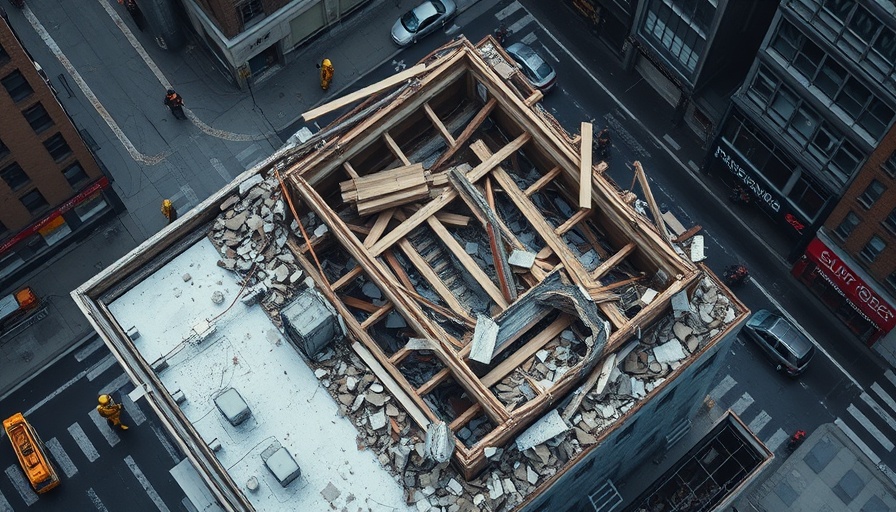
The Tragedy Unfolds: A Night at the Jetet Nightclub
The recent roof collapse at the Jetet nightclub in the Dominican Republic has left a nation in mourning, with the confirmed death toll now standing at an astounding 218. This incident occurred during an event attended by a mix of musicians, athletes, and government officials, showcasing the heavy toll of this catastrophe. Witnesses described how a fine dust fell from above just moments before the roof caved in, creating an eerie precursor to the tragedy that would unfold. Emergency services found themselves inundated with over 100 calls, many reporting individuals trapped beneath the debris.
In 'Roof collapse at Dominican Republic nightclub kills 218', the discussion dives into the tragedy's implications for safety regulations and accountability, leading us to analyze its broader significance.
A Government in Grief: Accountability for Lives Lost
As the recovery operations continue, the question on everyone’s mind remains: what led to this devastating incident? While preliminary reports suggest that the cause is still unknown, the Dominican government has promised a thorough investigation once recovery efforts are complete. It is crucial for victims' families and the public that transparency prevails in this inquiry. This incident not only raises questions about building safety and regulatory oversight but also highlights broader systemic issues in governance. How could such a concerning lapse in safety occur with so many lives at stake?
The Immediate Response: Heroes and Survivors
The rapid response from police and emergency services was commendable; authorities reached the scene within 90 seconds. However, with such an overwhelming number of calls and the immediate chaos, the capacity of the local emergency services to manage the situation fully came into question. The response reflects both the urgency of the moment and the systemic strains experienced by emergency services in high-pressure situations. Engaging with communities to enhance emergency preparedness might be an avenue worth exploring post-crisis.
Historical Context: Lessons from Past Disasters
Tragic events like the Jetet nightclub collapse are not isolated occurrences. Across the globe, there have been instances of structural failures, prompting calls for heightened regulatory measures in the construction industry. For instance, high-profile collapses in cities like Johannesburg have led to tightened building codes. Drawing parallels between these events allows us to explore what best practices can be implemented to prevent future disasters.
Future Predictions: Crises and Opportunities for Reform
In the wake of this tragedy, the potential for policy reform is considerable. Crises often serve as catalysts for change. Will the Dominican Republic strengthen its building inspection protocols to ensure such a tragedy never happens again? Future predictions suggest an essential shift towards increased accountability and transparency in governmental oversight, galvanizing reforms within the construction industry.
Human Impact: Voices from the Ground
The emotional toll of such an incident cannot be measured merely by its statistics. The families and friends of the victims are left to grapple with profound loss and anguish. Survivors, who may carry the shock and trauma of witnessing such horror, require holistic support through counseling and community initiatives. The human aspect of this disaster must remain at the forefront as the story evolves.
A Call to Action: Demand for Accountability
As we reflect on this tragedy, it’s crucial that citizens demand accountability from their government leaders. Events such as these often initiate public discourse about infrastructure safety and emergency response mechanisms. Advocating for improved building standards and increased safety measures is a responsibility we all share. Engagement with local leaders to foster community forums can promote discussion and urge authorities to act decisively.
In conclusion, the roof collapse at the Jetet nightclub is a stark reminder of the fragility of life and the importance of rigorous safety standards. We urge readers to participate in the dialogue surrounding disaster preparedness and government accountability. Voices of concern must resonate in the halls of governance, ensuring this tragedy paves the way for future preventive measures.
 Add Row
Add Row  Add
Add 




Write A Comment